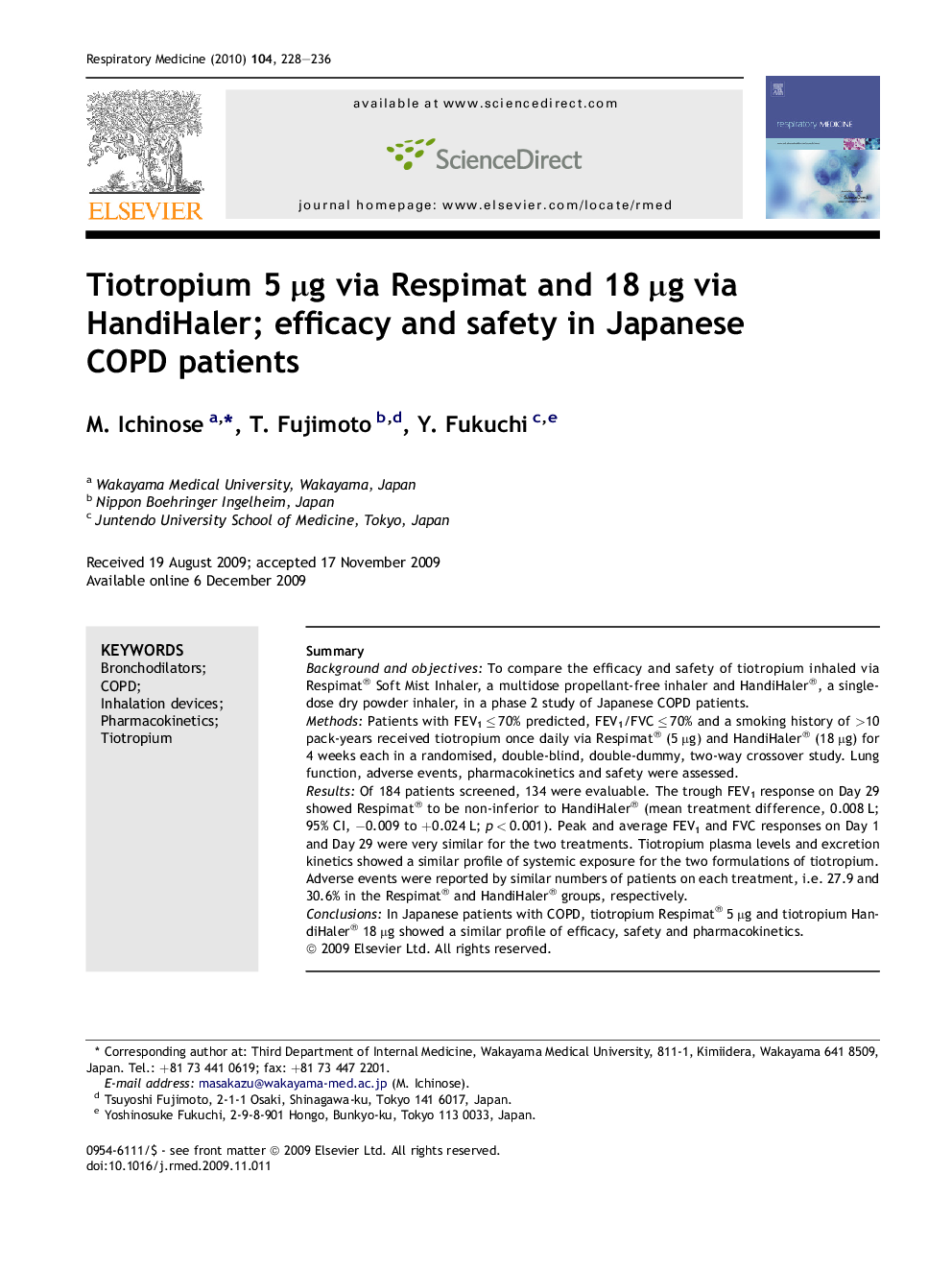| Article ID | Journal | Published Year | Pages | File Type |
|---|---|---|---|---|
| 4211218 | Respiratory Medicine | 2010 | 9 Pages |
SummaryBackground and objectivesTo compare the efficacy and safety of tiotropium inhaled via Respimat® Soft Mist Inhaler, a multidose propellant-free inhaler and HandiHaler®, a single-dose dry powder inhaler, in a phase 2 study of Japanese COPD patients.MethodsPatients with FEV1 ≤ 70% predicted, FEV1/FVC ≤ 70% and a smoking history of >10 pack-years received tiotropium once daily via Respimat® (5 μg) and HandiHaler® (18 μg) for 4 weeks each in a randomised, double-blind, double-dummy, two-way crossover study. Lung function, adverse events, pharmacokinetics and safety were assessed.ResultsOf 184 patients screened, 134 were evaluable. The trough FEV1 response on Day 29 showed Respimat® to be non-inferior to HandiHaler® (mean treatment difference, 0.008 L; 95% CI, −0.009 to +0.024 L; p < 0.001). Peak and average FEV1 and FVC responses on Day 1 and Day 29 were very similar for the two treatments. Tiotropium plasma levels and excretion kinetics showed a similar profile of systemic exposure for the two formulations of tiotropium. Adverse events were reported by similar numbers of patients on each treatment, i.e. 27.9 and 30.6% in the Respimat® and HandiHaler® groups, respectively.ConclusionsIn Japanese patients with COPD, tiotropium Respimat® 5 μg and tiotropium HandiHaler® 18 μg showed a similar profile of efficacy, safety and pharmacokinetics.
